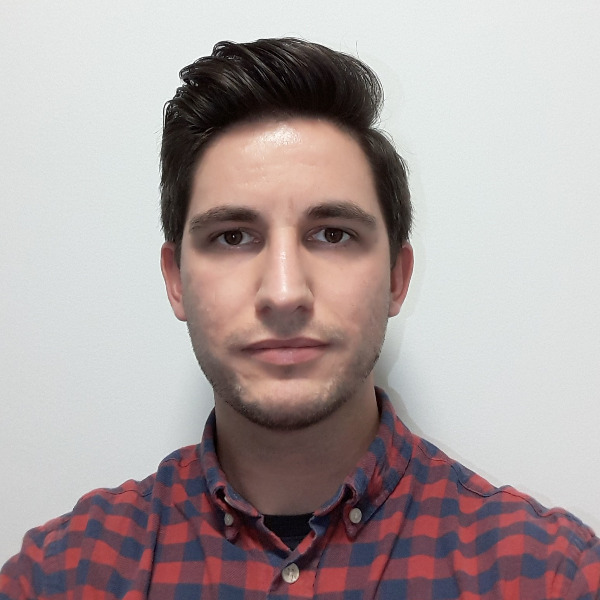| University | University of Groningen (UG) |
| Institute and/or group | Stratingh Institute for Chemistry (Stratingh) |
| Advisors | Prof. dr. Ben L. Feringa (UG), Prof. dr. Sijbren Otto (UG) |
| oLife Research Areas | II. Defining properties and synthesis of Life, from the molecular to the biosphere level III. Modelling, predicting and steering of Life |
|
Start date End date Next career step |
April 1, 2020 March 31, 2023 Extension at UG till March 31, 2024 University of Cambridge from 1-11-2023 |
Profile of the fellow
Damián Padín Santos (1991) was born in Cambados (Spain). He received his B.Sc. and M.Sc. in Chemistry from the University of Santiago de Compostela. In 2019, he got his PhD in Organic Chemistry under the supervision of Prof. Carlos Saá and Prof. Jesús A. Varela working on the development of new chemical transformations based on the catalytic generation of ruthenium vinyl carbenes.
During his PhD studies, he was awarded with a Barrié Foundation fellowship to perform a short stay in the group of Prof. Amir H. Hoveyda (Boston College, USA). In 2018, he joined the Sociedade Xuvenil Galega de Química (Galician Youth Society of Chemistry), where he was appointed treasurer of the group. In April 2020, he will join the group of Prof. Ben Feringa as an oLife postdoctoral researcher to work on autocatalysis with chiral amplification.
Asymmetric Autocatalysis and Chiral Amplification
The single-handedness of chiral biomolecules, such as L-amino acids and D-sugars, is essential for molecular recognition, biosynthesis and replication in cells and, as such, is considered a signature of life. The origin of this homochirality has intrigued the scientific community for more than a century. It is now believed that two mechanisms were necessary for the generation of homochiral organic molecules: i) an initial symmetry breaking and ii) a chiral amplification process that eventually led to a one-handed world. While several theoretical and experimental models have been reported for the former, few biologically relevant models have been proposed for the latter. Thus, the aim of this project relies on the search for new autocatalytic and self-replicating systems with asymmetric amplification based on the use of simple organic compounds that could potentially operate under prebiotic conditions.

Dr. Damián Padín Santos
